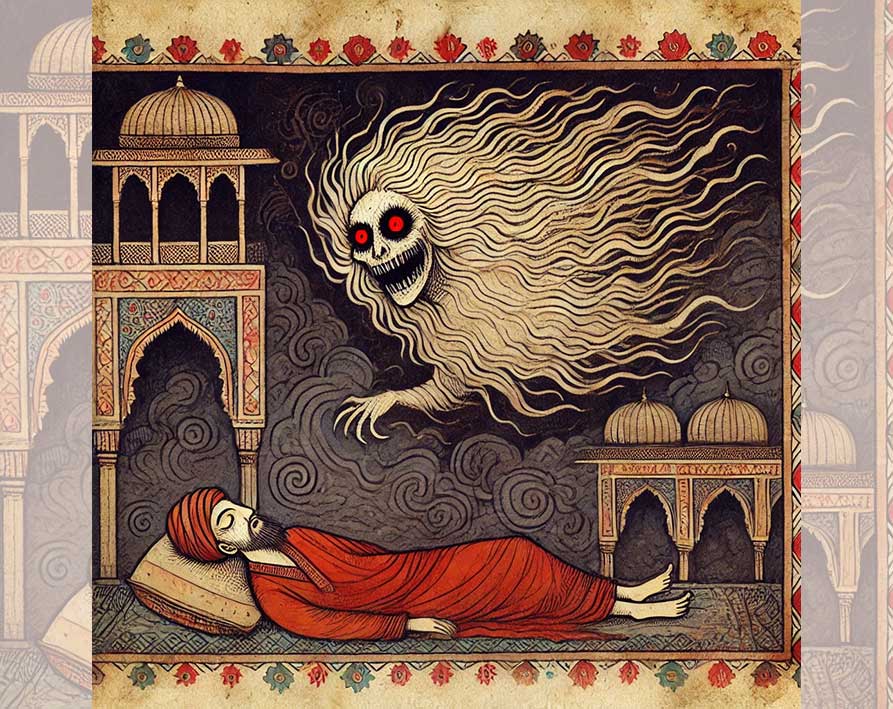Al Basti is a terrifying female spirit or demon in Middle Eastern and Turkish folklore, often associated with sleep paralysis and nightmares. She is believed to be a vengeful entity, punishing those who have wronged women or violated moral codes.
Origin:
- Location: Mesopotamia, Turkey, and surrounding regions
- Cultural Context: Rooted in ancient Mesopotamian myths, Al Basti has evolved into a feared symbol of suffering, seen as both a bringer of retribution and a haunting shadow of unresolved guilt.
Key Figures:
Al Basti herself is depicted as a pale or blood-red woman with burning eyes, sometimes appearing in dreams or hovering over her victim’s chest during sleep.
Themes:
- Revenge and Justice: Punishing the immoral.
- Nightmares: A physical manifestation of guilt and fear.
The Story:
According to legend, Al Basti visits those who have wronged women — husbands who betrayed their wives, men who abandoned their families — and inflicts a slow, suffocating dread upon them. Victims often wake in the middle of the night, paralyzed, with the sensation of a heavy figure pressing down on their chest. Some stories claim she can curse entire households, bringing misfortune and despair until her thirst for vengeance is quenched.
Significance:
Al Basti embodies the fear of supernatural retribution and serves as a reminder of moral accountability. The myth highlights societal fears around betrayal and unresolved guilt, transforming them into a literal, haunting force.
Similar Tales:
- Lilith (Mesopotamian mythology): Another female demon often associated with the night and vengeance.
- Churel (South Asian folklore): A vengeful spirit of a mistreated woman, with striking thematic similarities.
- Jathum (Arabic Folklore): A specific type of Jinn associated with sleep paralysis.
Sources:
- Myths from Mesopotamia by Stephanie Dalley
- Ancient.eu for Mesopotamian myths
- Arkeonews

